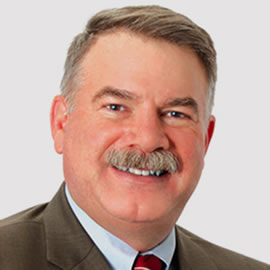“The two most frightening words in Washington are ‘bipartisan consensus.’ Bipartisan consensus is when my doctor and my lawyer agree with my wife that I need help.” —P.J. O’Rourke

Editor-In-Chief, Chester “Trip” Buckenmaier III, MD, COL (ret.), MC, USA
I have been struggling with the idea of consensus-building for some time in my machinations within the Defense Health Agency to mold effective pain management policy for military beneficiaries. P.J. O’Rourke, one of my favorite modern authors and satirists, cuts to the heart of the issue with brevity and humor. I can easily identify with the feeling that O’Rourke’s comment on consensus evokes in my efforts to move forward on any front within pain medicine by forging agreement among military medical leaders.
As I have noted many times in this column, decisions for medical change are far easier to achieve during a hot war, when the necessity for action is made clear through the clarifying lens of servicemembers’ blood, injury and suffering. I would argue that the path forward in these situations is not difficult to ascertain, and leaders need merely evoke the U.S. Army infantry motto, “Follow me!” (Thank you, Maj. Gen. Aubrey S. “Red” Newman). I certainly enjoyed the feeling of a unified sense of purpose when I was in uniform and working with many like-minded medical warriors to improve pain management on the battlefield. At the time, the changes we wrought upon the system seemed to take forever, but I understand, in hindsight, that we were moving at light speed compared to the glacial inertia bringing change within federal medicine without the transforming enzyme of routine combat.
I understand the value of building consensus for making important decisions. The reality of climate change, so difficult to appreciate on the scale of the individual, is made real through the consensus of the majority of climate scientists working in myriad areas concerning this issue. History is replete with examples of the tragedy that follows when individuals ignore consensus, as in a dictatorship. As a leader, I am a believer of building consensus when practiced in moderation.
Complete consensus, on any major decision or issue, I have also found not to be desirable. As Gen. George S. Patton reminds us, “If everyone is thinking alike, then somebody isn’t thinking.” Furthermore, I have found that any effort to achieve complete consensus is the antithesis of effective action or decision on most issues. I would even go further and state that leaders who fail to act without first achieving complete consensus have ceased being leaders. Leadership is not just about making decisions on the direction a group should move. More importantly, it is about taking personal responsibility for the decision and accepting the consequences, whether positive or negative. Few things are more damaging to my opinion of a leader than one who blames a failed decision on the consensus of the group. Leaders must accept accolades for good decisions on behalf of the group and perhaps more importantly, they must own failed decisions personally and alone.
I think the great civil rights leader Marin Luther King Jr. understood what I am expressing and defined this issue best when he said, “A genuine leader is not a searcher for consensus but a molder of consensus.” The molding of consensus is inherently an active process. It requires a leader to thoughtfully seek and carefully listen to the opinions of the group on any decision, but it does not require the leader to necessarily take a course of action that is consistent with the group’s consensus. Some of the most important decisions in this country were made in opposition to the leader’s advisers and their consensus for a different course of action. An example of this was President Abraham Lincoln’s issuance of the Emancipation Proclamation on Jan. 1, 1863, against the consensus of most of his Cabinet advisers.
I have chosen this topic to usher in the next decade of U.S. Medicine editorials because we are faced by so many challenges in federal medicine that will require leadership within our system, and yes, consensus-building, as long as the efforts for consensus are not at the expense of action. Federal medicine faces many challenges in the new decade: the opioid crisis, shrinking healthcare budgets, reorganization of federal healthcare, to name only a few. We cannot afford the paralysis that comes from seeking to achieve complete consensus on these issues. We will require federal medicine leaders willing to follow the example of some of the heroes and heroines from our history mentioned in this editorial and do the hard work of making and owning needed decisions on the tremendous challenges facing our system.
American leaders from our past, to our collective benefit, have always stood up to face the challenges of their time and make the hard calls needed to move our democracy forward, often against popular consensus. In this new year and new decade, I challenge federal medicine leaders to do the same. Servicemembers and families we serve deserve no less, and history is watching.
